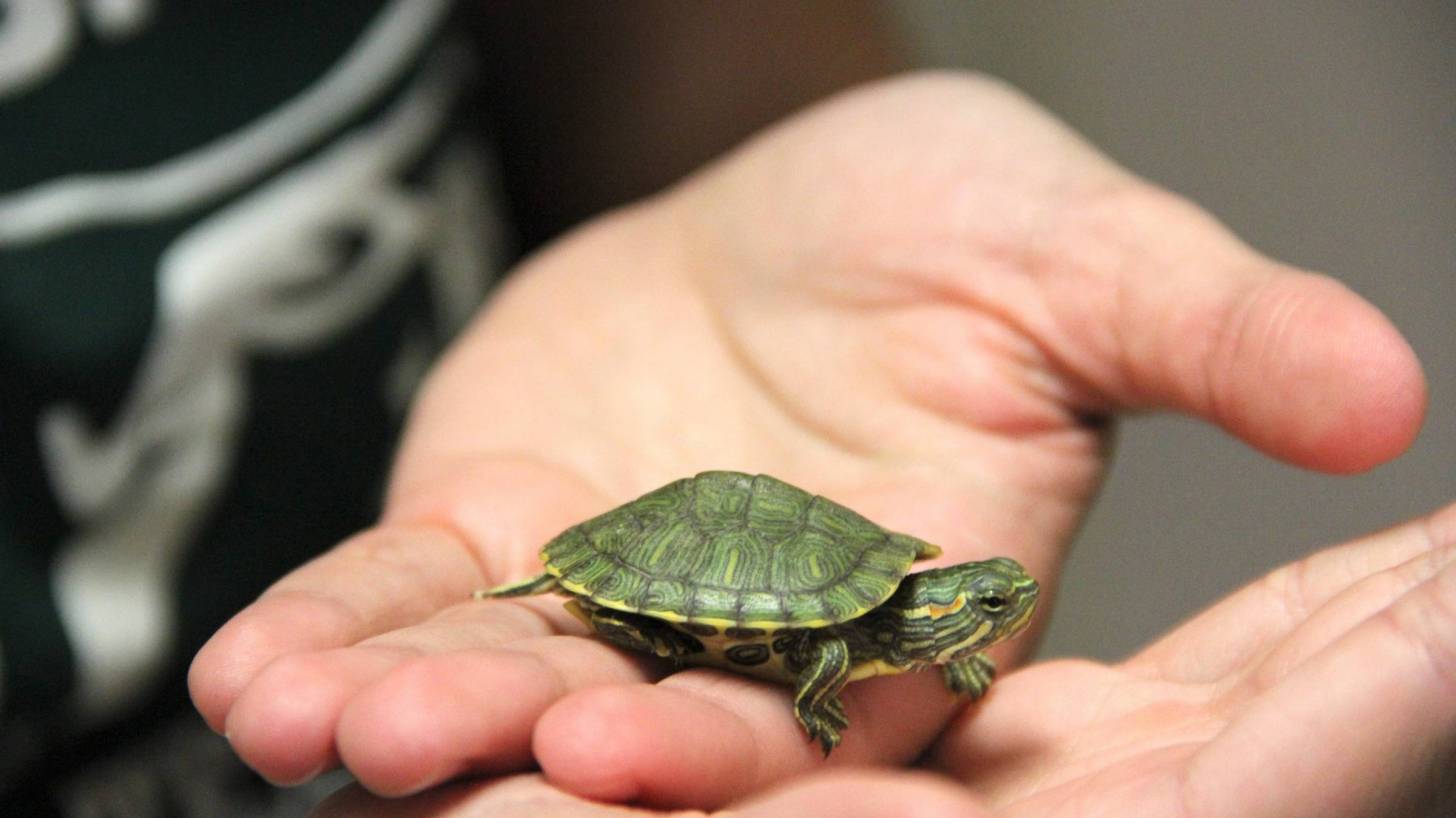Tiny Turtle Troubles Turn Serious

Various states are investigating a human Salmonella outbreak linked to pet turtles. Since the last update on August 29, 2017, twenty-nine (29) additional people have been infected in 14 states.
Epidemiologic findings link this outbreak of human Salmonella Agbeni infections to contact with small turtles.
Health officials say all turtles, regardless of size or cleanliness, can carry Salmonella bacteria.
Since 1975, the FDA has banned selling and distributing turtles with shells less than 4 inches long as pets.
The year to date total of 66 people infected with the strain of Salmonella Agbeni have been reported from 18 states, with New York the leader, according to the Centers of Disease Control and Prevention (CDC).
Twenty-three of these individuals have been admitted to a hospital. But, no deaths have been reported.
Additionally, twenty-three (35%) of the infected people are children younger than five years old.
From 2006 to 2014, the CDC investigated 15 multistate Salmonella outbreaks linked to turtles; 921 people were sickened, 156 were hospitalized, and an infant died.
These outbreaks are expected to continue since consumers might be unaware of the risk of Salmonella infection from small turtles.
There is not a vaccine available to prevent Salmonella.
Enteric zoonotic diseases are diseases that affect your stomach or intestines and are spread between animals and people. These diseases are caused by germs, including Salmonella, E. coli, and Campylobacter bacteria.
These germs can cause illness in your stomach and intestines, with symptoms like diarrhea, or stomach cramps.
The CDC recommends that households with young children do not keep turtles or other reptiles as pets. The CDC’s other prevention suggestions are as follows:
- Children younger than 5, people with weak immune systems, and adults older than 65 should not handle or touch amphibians, reptiles or their environment.
- Don’t cross-contaminate! You don’t have to touch a reptile or amphibian to get sick from their germs.
- Reptile foods such as frozen or live rodents, equipment, and materials, including the tank water, can be contaminated with Salmonella and other germs.
- Keep your reptiles and amphibians and their equipment out of your kitchen or anywhere food is prepared, served, or eaten.
- Clean reptile and amphibian habitats outside your home.
If you cannot clean items outside of your home, clean items in a dedicated bin and use warm, soapy water to clean the bin and any surfaces it touches.
And finally, the CDC says ‘don’t kiss or snuggle with turtles, reptiles and amphibians.’
Our Trust Standards: Medical Advisory Committee
- The Trouble with Tiny Turtles
- CFR - Code of Federal Regulations Title 21
- Multistate Outbreak of Salmonella Agbeni Infections Linked to Pet Turtles, 2017
- About Enteric Zoonotic Diseases
- Climate change, extreme events and increased risk of salmonellosis in Maryland, USA: Evidence for coastal vulnerability
- 30 Awesome Puppy Care Tips


